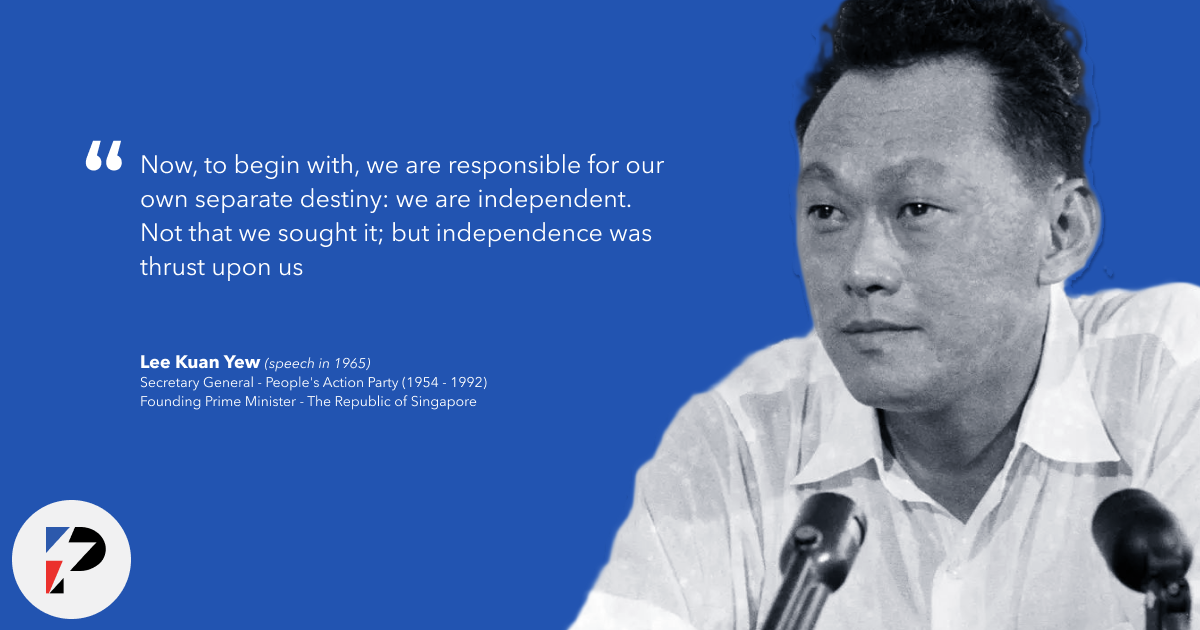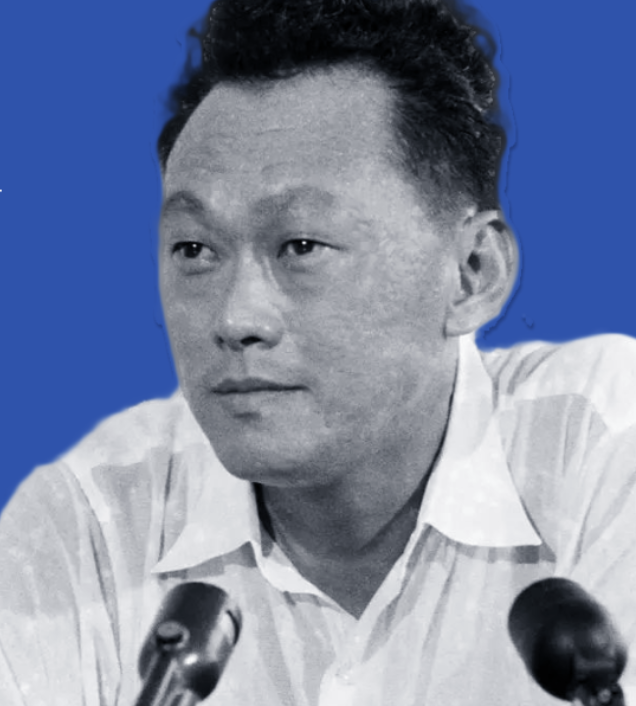I read One Man’s View of the World – a book by Lee Kuan Yew.
Here’s what I learnt:
Lee Kuan Yew is recognised as the founder of modern Singapore. He has a fascinating story of a time, and talks about his experience in Singapore when Japan invaded.
Lee was born in Singapore during British colonial rule. After graduating from Raffles Institution, he won a scholarship to Raffles College (now the National University of Singapore). During the Japanese occupation, Lee escaped being the victim of a purge,[4] subsequently starting his own businesses while working as an administration service officer for the Japanese propaganda office. After World War II ended, Lee briefly attended the London School of Economics before transferring to Fitzwilliam College, Cambridge to study law, graduating in 1947. He was called to the Bar from the Middle Temple in 1950. Upon his return to Singapore, he practiced as a Advocate and Solicitor whilst campaigning for the British to relinquish their colonial rule.
Lee made a number of smart decisions and he has a unique view of the world that we can learn from.
- The languages of Singapore, and managing the delicate multicultural balance of Singapore.
One of Lee Kuan Yew’s policies was making the Malay language the national language of Singapore, but there being multiple official languages: English, Chinese, Malay and Tamil. With English being the main working business language. It was important for Malay to be the national language of Singapore, but this was unpopular with people at the time, particularly some of the Chinese community which now makes up 75% of Singapore, but English being the main working language played an important role in Singapore being an international city and attracting business, jobs and opportunities and therefore development. - Europe and India’s language problems
Lee Kuan Yew looks at Europe and India and their language problems. He believe’s that they would benefit from having a single common language, and especialy Europe would do well if, like Singapore, it had English as the main working language. This would be an popular policy in Europe but it could be beneficial for free movement of people, labour and for communication. - Managing a declining birth rate and the role of immigration
One of the challenges of a developing Singapore is the falling birth rate. Like every country in the world that develops wealth and education, the birth rate falls which brings a range of demographic and economic challenges. A range of policies have been tried to try to encourage birth rates to rise, but he sees immigration as being important to plug this gap, although it’s brought with it a range of challenges to the Singapore economy.He looks at Japan’s falling birth rate and the effect this is having on Japan’s economy. He understands that Japan’s population is largely homogenous and so it is difficult to attract foreigners and for them to assimilate into the local population, but he believes that it could be done by seeking to attract immigrants from neighbouring asian countries such as Indonesia, Philipines, Vietnam, etc., who could fit into the culture more easily.He looks at USA which is a country that has fully embraced immigration and the huge benefits this has brought for innovation.
- China’s centralism
Lee Kuan Yew is of Chinese descent and he understands China well despite needing to learn and improve his Chinese. Singapore, and Lee Kuan Yew, has played a key role, for China’s opening up, with Deng Xiao Ping’s visit to Singapore serving as a model, and inspiration for China’s opening up.He explains how Chinese culture is of being centrally managed which is different to European and American bottom up individualism. China has always been centrally managed, and it is important for China to have a powerful and strong center. He has also adopted this stance in the way he has managed and governed Singapore. He does say that the weakness of China’s model is that it is not as good for innovation as the US model which welcomes immigration, new ideas, and bottom up, individualism. - Neutrality with a rising China
Lee Kuan Yew sees the role of Singapore in the future as being neutral. China is the big neighbour and the key power of Asia and so needs to have good relations with China, while Singapore also seeks positive relations with all leading international powers. - High Salaries for Government
Another interesting point is that in Singapore the salaries are much higher than in Europe and US, with Lee Kuan Yew’s salary being the equivalent $2 Million USD+. The prime minister of UK’s salary is 150,000 GBP. I can understand the case for giving leaders a higher salary. It is probably the most important jobs of a country, and in order to attract the best talent it should pay the market rate.
I strongly recommend this book and learnt a lot!
Let me know if you have any comments!
Thanks


Thanks for the brief! Will definitely read.